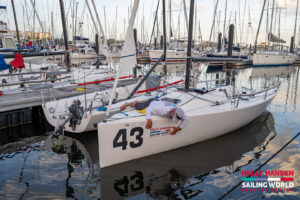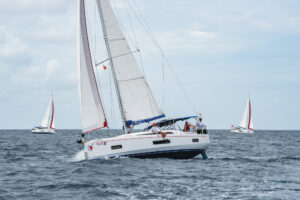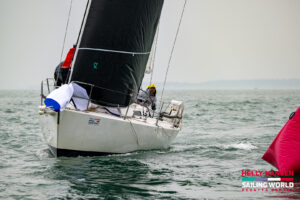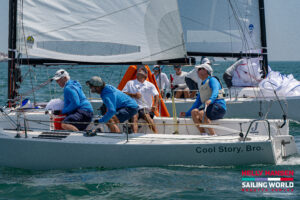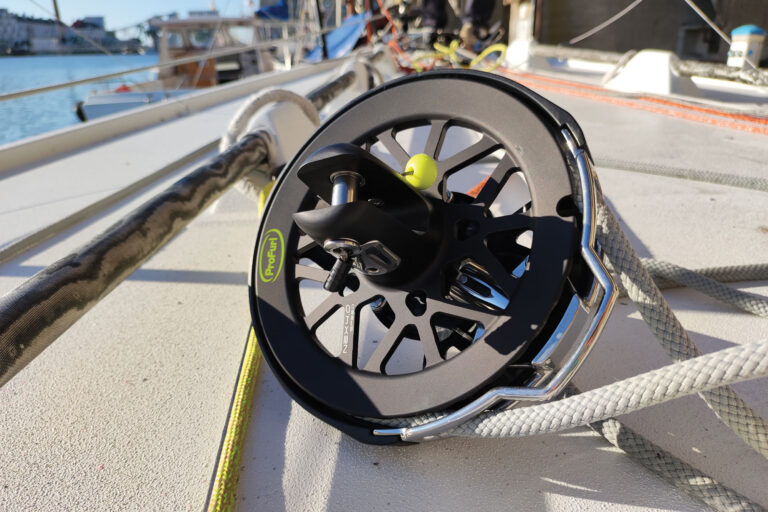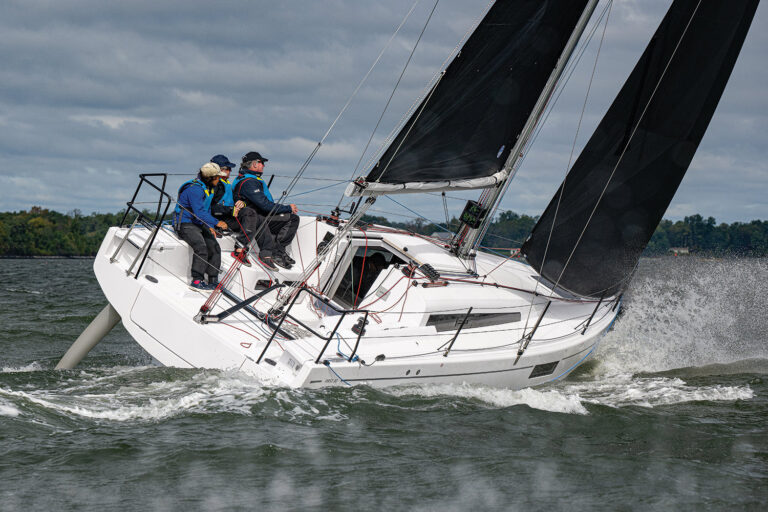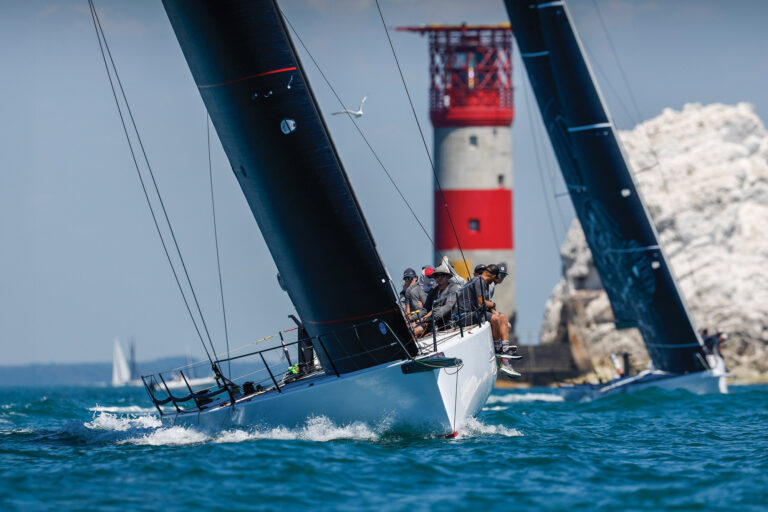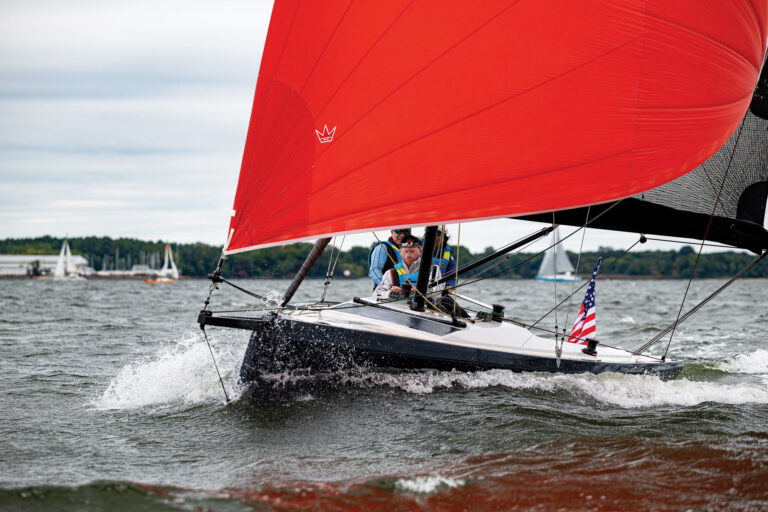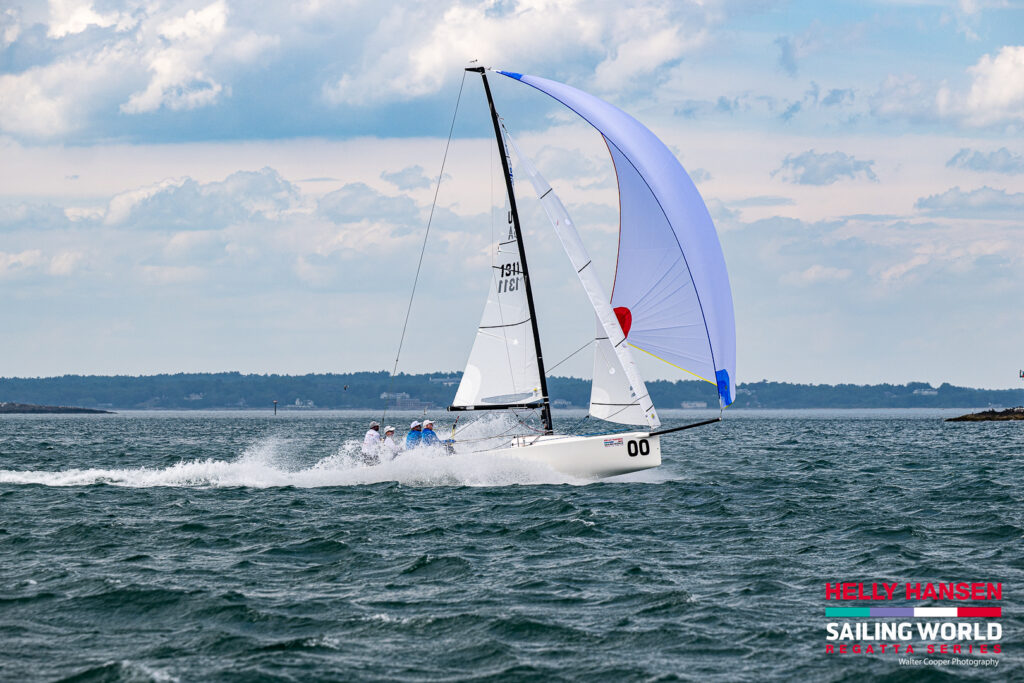
The second day of the Helly Hansen Sailing World Regatta Series at Marblehead Race Week was progressing like any other classic summer day off the coast of the iconic East Coast harbor, with nearly a half-dozen one-design fleets enjoying the afternoon’s final races. The morning’s brilliant sunshine had given way to towering thunderclouds that slid past to the south, and all was easy going.
Until it wasn’t.
Just as the regatta’s J/70s, Viper 640s and International 110s were sailing their final downwind legs, a surprising wall of wind unleashed its fury. While some teams savored the high-speed spinnaker run, many opted to keep their spinnakers on deck.
Other sailors were caught off guard with the ferocity of the fast-moving squall, including Joe Berkeley and his crewmate Linda Epstein, winners of the day’s first race in the International 110 fleet.
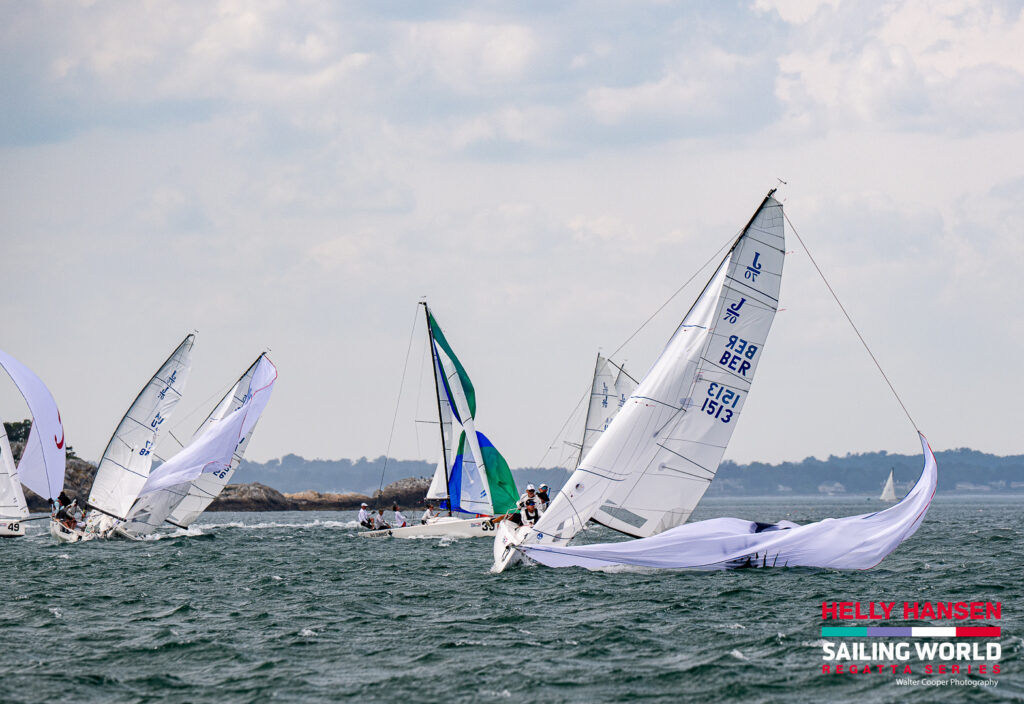
They were within striking distance of the race leader, and “licking our chops,” Berkeley says. With Epstein on the trapeze and trimming the spinnaker and Berkeley on the helm of the flat-bottomed one-design classic, they were relishing the high-speed run until they altered course to avoid a J/70 sailing upwind.
In a blink, they were on their side and taking on water.
“The boat rounded up and flipped really fast,” he says. Epstein ended up tangled in the mainsail but managed to release the vang to prevent the boat from sinking completely.
Although they avoided a total submersion, the boat was awash and required extensive bailing. “It was a moment of introspection,” Berkeley reflected candidly, accepting responsibility for the capsize. “I should’ve taken the kite down. I didn’t.”
Despite the setback, he remained grateful they hadn’t broken any equipment and was looking forward to returning for the next day’s racing.
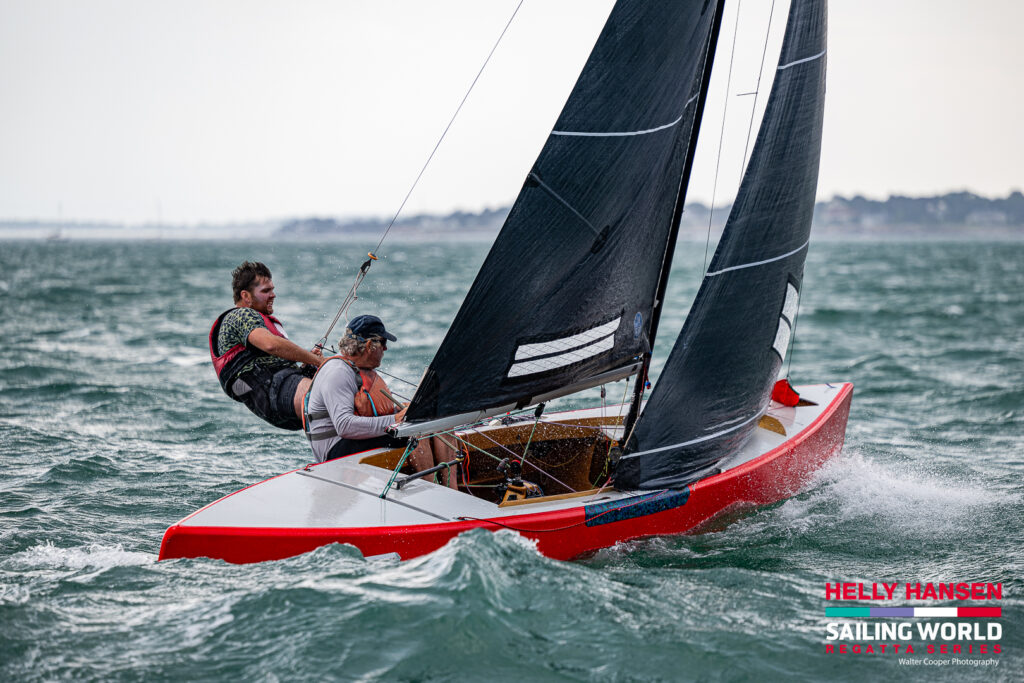
Berkely and Epstein’s closest rivals, Steve Clark and his crewmate Bill Platt, had doused their spinnaker in time and let the worst of the squall pass. They were soon back to full sail and winning the race easily and lead the series.
In the chaos of the squall, while wildly exiting the windward mark offset in traffic, Bruce Golison’s crew on the J/70 Midlife Crisis, which won the first race of the day collided with another boat and retired from the race with both boats sustaining damage.
Peter Duncan’s J/70 team on Relative Obscurity was well ahead of the fray when the worst of it hit and was enjoying a blistering run until they had to drop the spinnaker in order to lay the mark. Obscurity crewmember Victor Diaz de Leon later reported that it was the fastest he’s ever gone in a J/70, with a 10-second or so sustained 21 knots. Dousing and two-sail reaching across the finish line gave them the race win and the series lead with a 1-point delta over Bruno Pasquinelli’s team on Stampede.
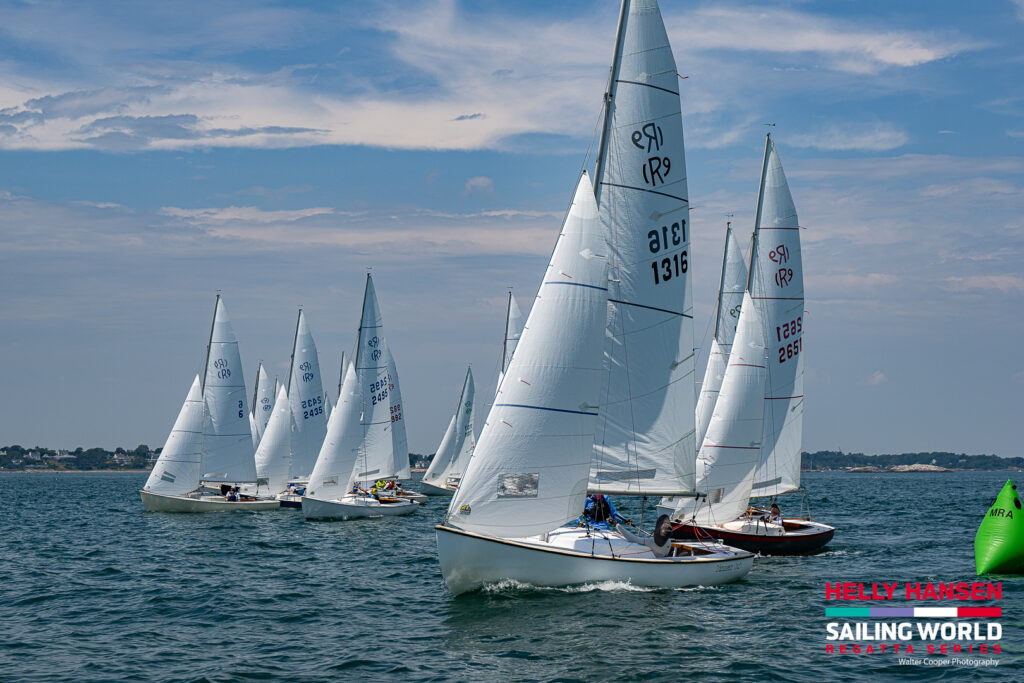
Henry Amthor and his teammates on the Viper 640 were seen whooping and laughing in the squall as they blitzed to their second race win of the day.
The regatta’s other fleets were already done racing and returning to harbor when the squall passed, and the team on Ted Hardenbergh’s Lightning, from Massabesic Yacht Club in Manchester, New Hampshire, were happy to miss it after an already high-stress day that has them leading their 8-boat fleet by only 1 point.
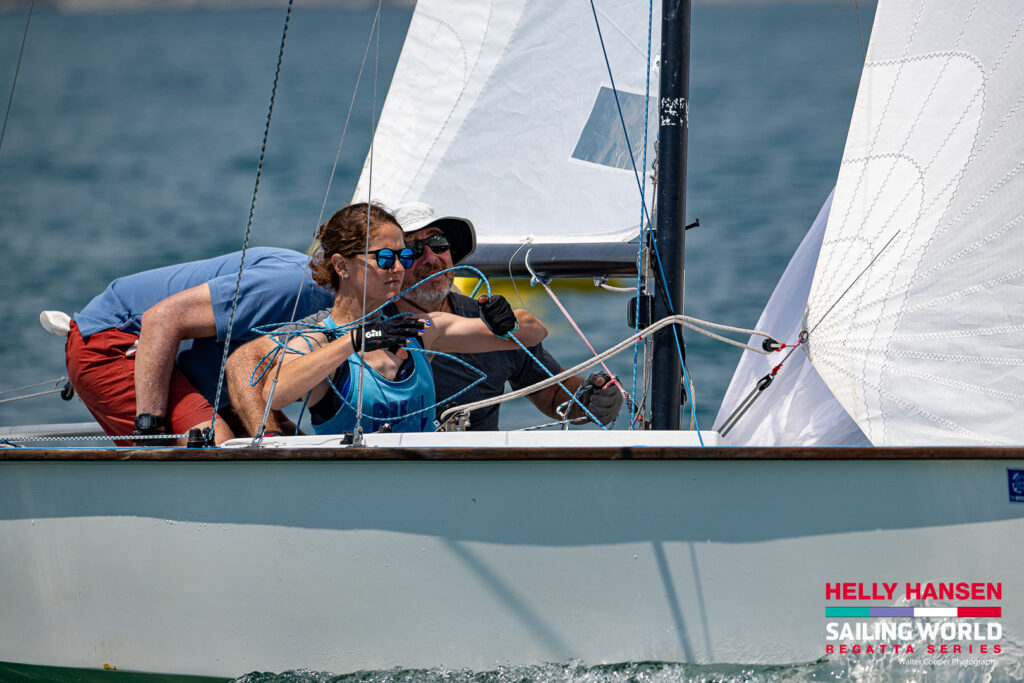
For them, it was a day of tactical comebacks and strategic adjustments that somehow worked out when they didn’t expect it to. In the first race, Hardenbergh found himself at the back of the fleet around the first mark after a bad start.
“The very first race, we were DFL to the first mark. We went hard left after the start,” Hardenbergh says. Despite the initial setback, his crew remained focused on the downwind leg. “We sailed deep on the first downwind leg and then jibed early. There was definitely more pressure coming downwind from the left,” he says. This one move allowed them to overtake nearly the entire fleet, ultimately securing a third-place finish.
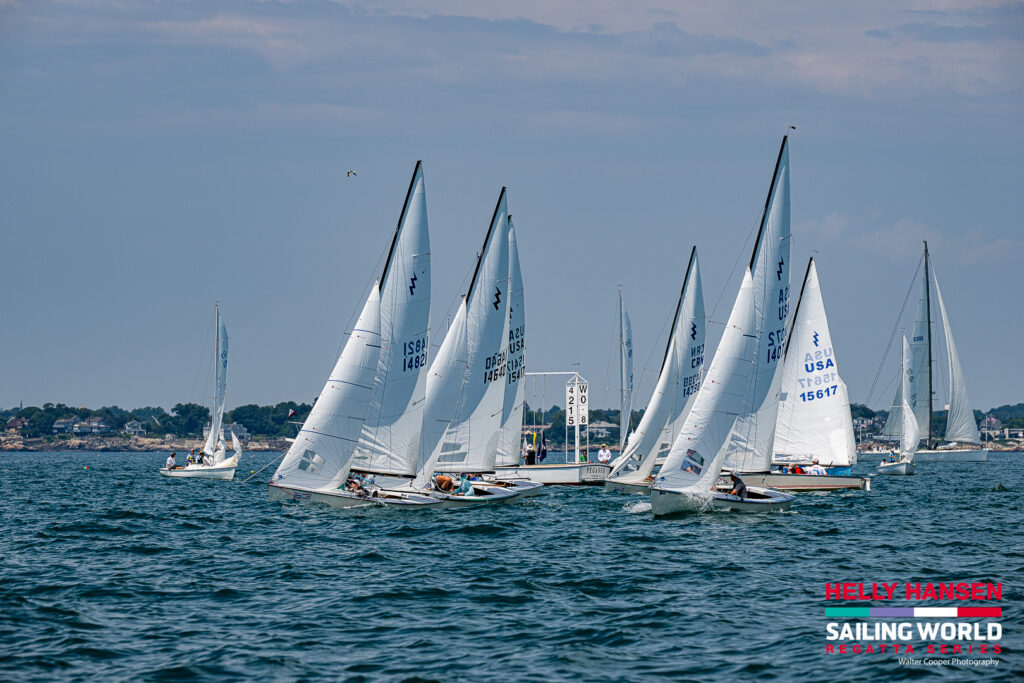
For the second race, Hardenbergh adjusted his approach based in changing conditions. “We were a little late to the boat, and we tacked away quick and went off pretty hard to the right,” he says, explaining their tactical decision to sail up current while expecting a right shift in the breeze as the storm clouds approached. The strategy paid off with a second-place finish after race officials shortened the course at the leeward mark.
In the third race, Hardenbergh continued his right-side strategy, leading the fleet in that direction despite another late start. “The pressure seemed to be over there. It seemed to work out well,” he says. Despite challenges navigating around the Rhodes 19 fleet near the weather mark, his team secured another strong finish, capping off what he described as “a major, major improvement” over the previous year’s performance.
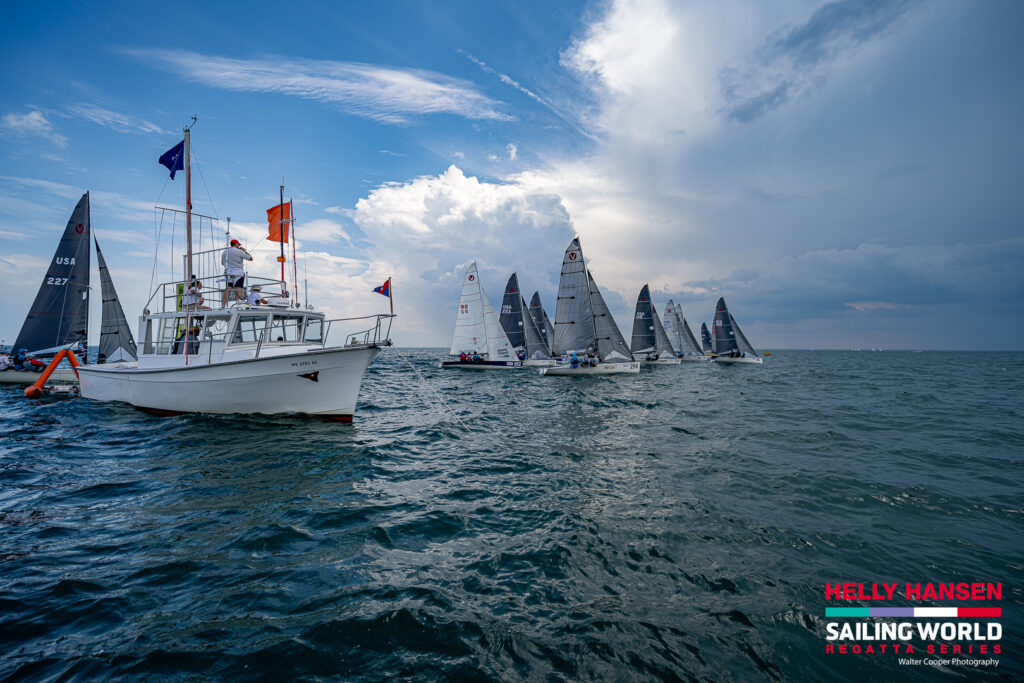
Brad Tindall, helming the Texas-based J/105 TnT (named for co-owners Greg Terman and Tindall), enjoyed a remarkable debut at Marblehead, securing multiple race victories. For Tindall, though not for all of his crew, this was a first-time experience at the Marblehead regatta.
“We had a great day, a really kick-ass start to the first race. We were launched out and just had great separation,” Tindall says. His team found themselves in perfect rhythm with the conditions, with boat balance and speed that allowed them to maintain an edge throughout the day.
The second race proved even more satisfying despite a challenging mid-fleet start. “The most gratifying race was the second one,” Tindall says. “We didn’t have such a great start, but we fought our way up.”
He says his crew demonstrated exceptional course awareness and tactical decision-making, consistently finding favorable wind shifts.
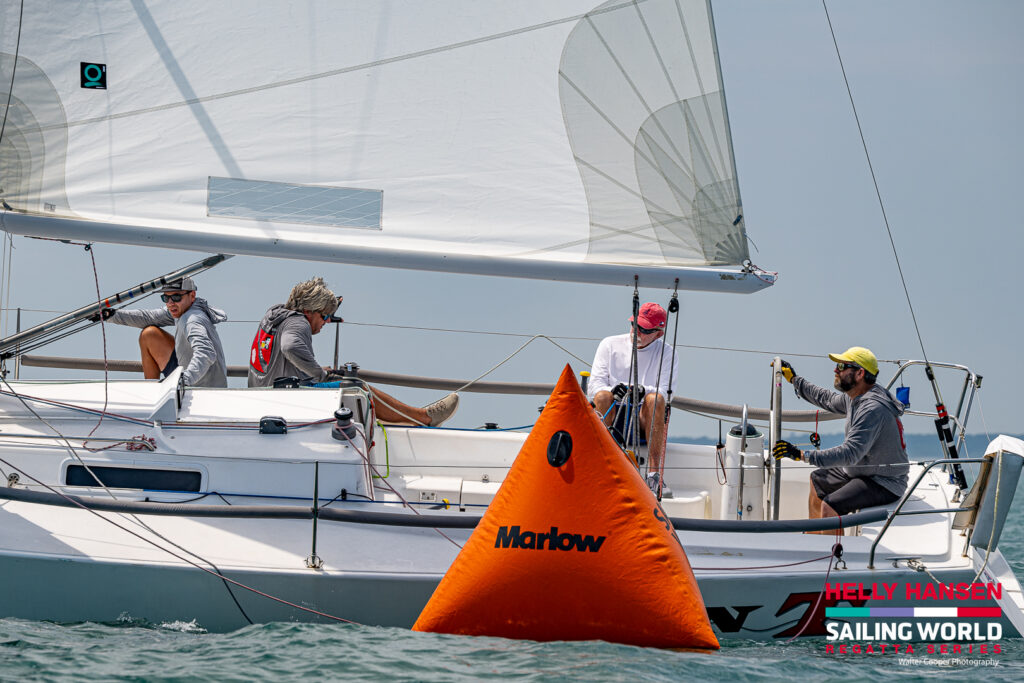
“Every time we tacked, we got lifted,” marveled his tactician Mark Foster, noting how unusual this consistent good fortune was. “It’s usually the other way around.”
Accustomed to the more predictable conditions of his home waters in Corpus Christi, Tindall found the day’s 60-degree wind shifts initially unnerving but ultimately manageable thanks to excellent crew coordination.
Their strong performance positions them well for the remainder of the regatta, 3 points ahead of Charlie Garrard’s Merlin, a local top team.
In the International One-Designs, which started the regatta on Thursday, Bill Widnall’s Javelin followed up its two race wins yesterday with a pair of thirds today. Carolyn Corbet’s Elektra was the top team for the day with a 1-2 to pull to within a point of Widnall’s Javelin.
The Rhodes 19 class also began its series on Thursday with a pair of races. The father-son duo of Nat and Jim Taylor have 1-2-7-1 on the scoreboard for a 6 point lead over Debbie Noble and Adam Roberts who finished the day with a 10th after an OCS restart had them battling back through the 23-boat fleet—no easy feat for sure.
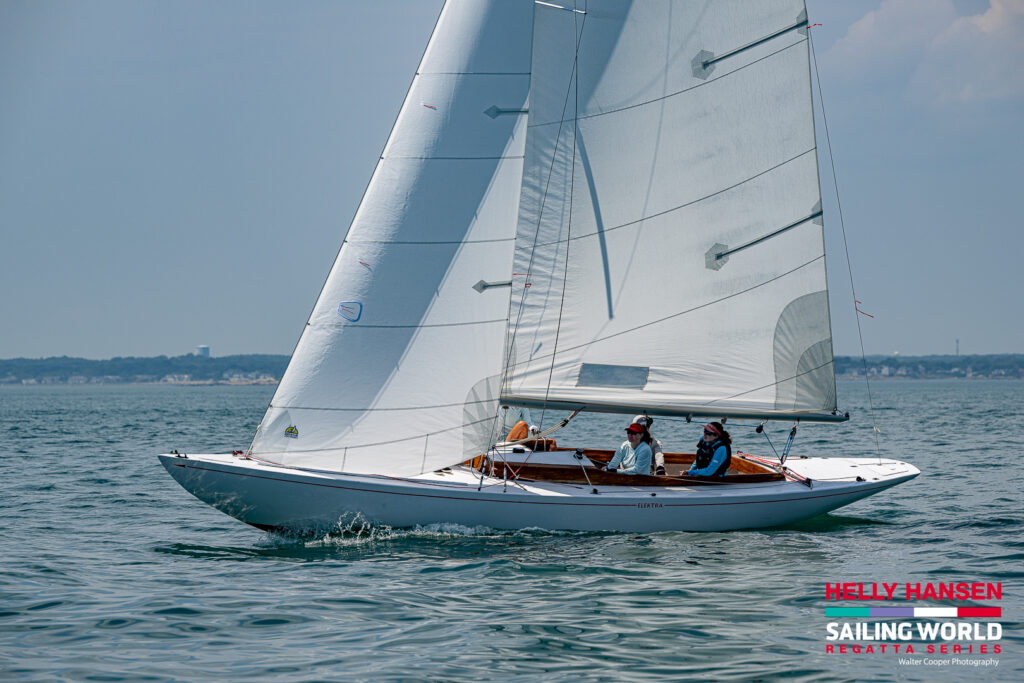
Nick Cann and Andrea Dodge lead the Town Class fleet after four races and Ben Wilkinson’s team on the Etchells Freebird lead its class with a first and second on the day. Numerous general recalls delayed a third race attempt, and that race was ultimately abandoned before the squall arrived.
ILCA 6 and 7 sailors begin their series tomorrow, with racing scheduled through Sunday.

